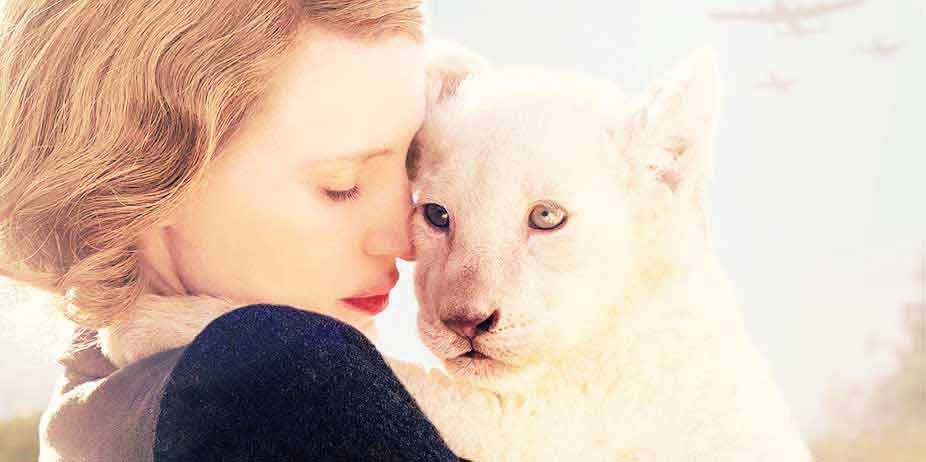The Zookeeper's Wife (2017)
I was hesitant entering into this film; as an animal lover, I hate to see animal deaths... but the story behind this woman's courageous actions in the Warsaw Zoo made it a must-see. For other animal lovers, the deaths are mostly implied, but the horrors of the occupying Nazi forces' disregard for human and animal life linger.
Antonina (Jessica Chasdain) lives a peaceful, happy life with her husband at the Warsaw Zoo. Known for its exotic animals the tender care of its keepers, she hopes their sweet little corner of paradise will go untouched by the war. Her hopes are short-lived. German forces override and bomb the city, leaving her home in tatters, and the Reich believe what remains of their cages is the perfect place to keep artillery.
Desperate to ensure her beloved animals' survival, Antonina entrusts the more exotic breeds to Lutz Hech (Daniel Bruhl), Hitler's zoologist. He intends to use them to breed "more perfect" species. But though her husband urges her to leave the city, she refuses: she will stay with him, and their home. And she cannot turn a blind eye to the horrors inflicted outside their walls. She takes in and hides one Jew, a friend. Then her husband (Johan Heldenbergh) decides a pig farm is the perfect front to smuggle as many people out as they can... even if it costs them their lives.
Holocaust movies are difficult to watch, and this one is no exception; between the grim horrors of the Nazi's carelessness toward life (they shoot half the animals for fun on New Year's Eve) and the gut-wrenching scene of Jewish children loaded into a train car, the audience never forgets the horrors of the great war. But they never forget its heroes either; the film does a good job of sticking to the known facts, and of humanizing its characters. Antoninia brings a soft female presence, but also the grit necessary to believe this woman would risk her life to save other people. Her scenes with a traumatized Jewish girl are especially touching; and the mural the child paints on their basement wall, of hope, courage, and anger, put a lump in my throat.
The setting is realistic, and the script does not go out of its way to abuse the audience, but it does address some uncomfortable truths (Antonina considers sleeping with the enemy for information). It might also make audiences aware of lesser-known aspects of the Nazi Regime (their desire to breed "pure" animals, in addition to eradicating "impure" people). Tension is consistent throughout, and the suspense builds into a powerful (and happy) ending, but not without a few costs along the way. If you can handle the emotional dynamics, it's a stirring, inspiring story of hope and courage amid a terrible time.
Sexual Content:
We see a married couple together talking in bed; when
she turns over, the camera catches her nipples (brief).
They later start making love in a different scene (he
kisses her, and falls back with her onto the bed). She
offers herself to another man for information; he forces
her into a room, onto a bed, and kisses her -- but after
a struggle, stops. Nazis force a pre-teen girl into an
alley; she comes out later post-rape, covered in blood
with her clothes torn, and shows PTSD symptoms. A
buffalo is bred to another.
Language:
Occasional profanities.
Violence:
Bombs decimate the zoo and leave animals dead; we see
their carcasses / dead animals. Nazis shoot others for
fun (mostly off-camera; we see an injured bull elephant
fall to the ground, and an eagle shot from a turret; a
baby camel lies in a pool of blood). Shots ring out,
implying other animal deaths. Two people are lined up
against a wall and shot in the head (distant view);
others are loaded onto trains for the gas chamber. A man
is violent toward a woman (pinning her down, throwing
her into a room, etc). Bombs go off; resistance shoot
Nazis; a woman believes her son has been killed (she
hears a gunshot).
Other:
None.

